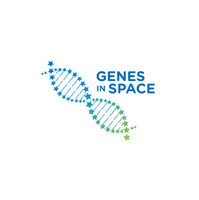
Young researchers are often excluded from the scholarly processes of peer-review and publication, which are cornerstones of scholarly work. The Journal of Emerging Investigators is an open access journal dedicated to publishing the research of middle and high school students. We surveyed student authors before and after they participated in the peer-review and publication process of their scientific articles.

In various formats, students at the secondary and postsecondary levels participate in multiweek authentic science research projects. There have been many papers explaining the operations of such programs, but few have provided explicit instruction on how to incorporate authentic communication practices into the student research process. In this paper, we describe how we integrated primary literature into an 8-week online research program for 8th to 11th graders.

There’s a consensus in science education that science should be something students actually get to do—that learning how to employ investigative methods to test hypotheses is just as important as understanding the periodic table or being able to diagram a cell. A group of professional researchers is now working to support that goal, giving teenagers the opportunity to publish their own scientific papers...

Aspiring space explorers need not wait to get involved in research on the International Space Station. In 2015, the Genes in Space program was established to grant students access to this extraordinary resource. Genes in Space is a competition for middle and high school students who are interested in becoming space biology pioneers. Here, the 2020 Genes in Space finalists are publishing their proposals in hopes that the creativity and careful thought they put into this work will inspire the next generation of explorers and innovators.

Central City, NE — Inspiration comes from unlikely places, like roadkill and animal droppings. It’s a project that may make some a little queasy. “Because it's about raccoon poop, that's what everyone tells me,” Sydnie Reeves said with a laugh.

Krystal Horton’s childhood dreams of becoming an astronaut took flight again when she was named as one of 25 student ambassadors for the Back To Space program, designed to bring space exploration back into popular culture. “My life is dedicated to exploring space,” said Horton, a senior at Western Center Academy in Hemet. “I have known since I was 6 and I met Sally Ride that I wanted to be involved in the space program.”

Karthik Ravi, a student at the International Academy in Bloomfield Hills, recently published a scientific manuscript titled “Upregulation of the Ribosomal Pathway as a Potential Blood-Based Genetic Biomarker for Comorbid Major Depressive Disorder (MDD) and PTSD” in the Journal of Emerging Investigators.

Arko Dhar, a student at St. Andrew’s Episcopal School, recently published a scientific manuscript titled, “Development of Diet-Induced Insulin Resistance in Drosophila melanogaster and Characterization of Anti-Diabetic Effects of Resveratrol and Pterostilbene” in the Journal of Emerging Investigators.

Budding entrepreneur Annika Huprikar loves family board games and has a desire to teach healthy eating habits to youngsters. She combined both passions two summers ago, designing the board game FRUGGIE (for FRUITS and VEGETABLES).

Deerfield High School junior Annika Huprikar has a novel idea for how to reduce childhood obesity. She came up with a board game.